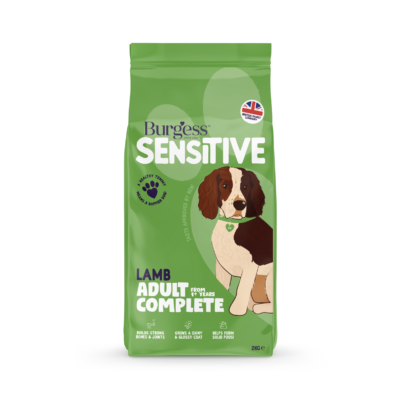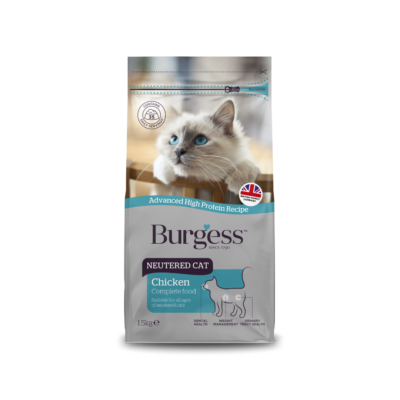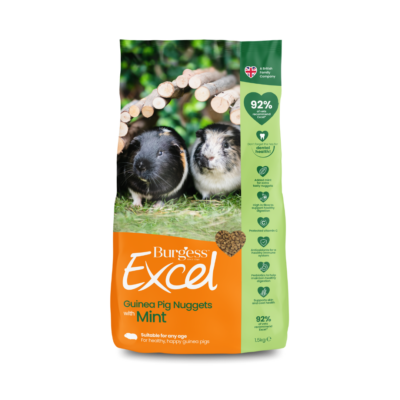
Who’s always pleased to see you when you get home? Who listens to your problems without judgement? Who shares your joy in happy moments and is source of comfort when you’re sad? Who is your most loyal friend? If the answer to all these questions is ‘my pet’, then you know from experience that the unique human/animal bond is like no other.
US veterinary surgeon, Anna M van Heeckeren, writes: “Animals and humans have a two-way relationship that goes deep and improves our lives. As a veterinarian, I take seriously my role of honouring the human-animal bond and sharing the emotional, physical, and psychological benefits of living with pets.”
She outlines some of the ways in which positive human-animal relationships are good for us, with benefits including:
- Reduced anxiety and stress
- Lower blood pressure
- Decreased risk of heart disease
- Allergy prevention for children
- Support for kids with autism
- Assistance for veterans with PTSD and other trauma survivors
- Increased social interaction
- Support for a longer life
JOBS THAT ONLY DOGS CAN DO From jobs that require incredible bravery and loyalty, to some more unusual canine occupations, there are certain jobs that, if you want them done properly, you need to enlist the services of a dog.
While there are all sorts of reasons why having a pet in our lives is beneficial – which may include companionship, spurring us on to take regular exercise and social encounters with other pet owners – Dr van Heeckeren highlights some intriguing neurochemical reactions that boost our mood when we interact with animals. These include:
- Phenylethylamine, which causes elation
- Dopamine, which gives us energy
- Endorphins, the chemicals that give us runner’s high
- Oxytocin, which makes us feel happy
- Prolactin, which causes nurturing feelings
Dr van Heeckeren adds: “Researchers have also found that pets provide a sense of security and comforting routines for people coping with long-term mental health issues.”
Pet therapy is increasing in popularity
With scientists now busily analysing the plethora of benefits that pets can bring, it’s no surprise that the feelgood factor of animals is being harnessed in all sorts of settings.
Ann Hemingway, Professor of Public Health and Wellbeing, Bournemouth University, says: “We’ve all heard of the psychotherapy couch, and the dynamic between a client and their human therapist. But perhaps less well known is the increasingly popular pet therapy. And no, that’s not therapy for your pet – it’s the relatively new phenomenon of therapy for humans, which involves animals.”
From therapy dog hospital visitors to care-home visiting cats, pet animals are providing all sorts of amazing benefits. Prof Hemingway adds: “Over the last 10 years or so, animals have started to help humans in settings away from the home – such as hospitals and care homes for the elderly, as well as schools, universities, prisons and rehabilitation services.”
REMEMBERING ANIMAL HEROES In wartime, the British, Commonwealth and Allied forces enlisted many millions of animals to serve alongside their armies. Between 1943 and 1949, 54 animals received the PDSA Dickin Medal – recognised worldwide as the animals’ Victoria Cross – including 32 pigeons, 18 dogs, 3 horses and 1 cat.
Everyone should have access to animal companionship
Pets As Therapy (PAT) is a national charity that enhances the health and wellbeing of thousands of people in communities across the UK by striving to ensure that everyone, no matter their circumstances, has access to the companionship of an animal.
The charity states: “Our volunteers and their temperament-assessed pets visit establishments such as care homes, hospitals, hospices, schools and prisons, and bring smiles to many faces. People of all ages get the chance to chat to someone – and stroke a friendly dog or cat.”
How Poppy the dog helped Evie to walk again
One young person who has recently benefited is 13-year-old Evie Evans, a patient at Addenbrooke’s Hospital in Cambridge. Evie was unable to walk after significant muscle weakening following two months of heavy sedation. However, now she’s back on her feet after what’s thought to be the country’s first NHS paediatric physiotherapy project involving a canine – a PAT Dog called Poppy.
Working with PAT Dogs has been shown to motivate patients during their physiotherapy. Evie’s mum Sara, who watched her daughter’s progress, says: “Poppy the PAT Dog got Evie to do things she wouldn’t have done otherwise – we call it Poppy power!”
The project was led by paediatric physiotherapist Jonny Littlewood and his team, with PAT Volunteer, Lisa Smart, and nine-year-old Poppy, who for three years have been cheering up patients elsewhere in the hospital. “Poppy is an endearing curly-haired Labradoodle and is such a happy girl, bringing with her an infectious energy,” says Jonny. “Poppy adapts to each child and is able to push patients harder to achieve their therapy goals more quickly.”
Misty the cat is now a loving companion for Hazel
Age UK – which focuses on helping everyone enjoy later life – has a team of wellbeing coaches who work within communities to enable those who feel isolated gain better access to services that meet their needs and wants.
Hazel, Age UK Cornwall's Community Wellbeing Coach, identified that local resident Pat – a very independent and sociable person who had been diagnosed with Multiple Sclerosis – was feeling isolated after her husband Barry, who has dementia, had to move into a care home.
Previously a dog owner, Pat revealed that she would love to have another canine companion. However, due to Pat’s mobility issues, caring for a dog was just not possible. After some thought, Pat said she felt that a cat would be more appropriate as she had cared for cats in the past. Her only condition was that the cat would be comfortable to enjoy sitting on a lap and being loved.
Hazel phoned Cats Protection Cornwall and spoke with the manager, who said she would be happy to re-home a cat to Pat. Pat looked through the list of available cats and spotted a lovely older girl called Misty. Misty had stunning eyes, one blue and one green, and the description stated that Misty wanted nothing more than a friendly lap to sit on – it was a match! Hazel reported that Pat was so happy and motivated by the thought of getting the companion she longed for. Following a successful handover, Pat and Misty are now the perfect pair.
WHY PETS CAN CHANGE OUR LIVES FOR THE BETTER Having a dog companion – or indeed any beloved pet, whether that’s a cat, bunnies, guinea pigs, ferrets, hamsters, chinchillas, rats or other adorable small furries – can really be life transforming.
Could your pet be a people therapist?
Pets As Therapy Volunteers are dedicated pet owners who give up their spare time to help others. Along with their dog or cat, volunteers visit all types of establishments including residential care homes, hospitals, hospices and both special needs and mainstream schools.
The charity says: “Our volunteers and their pets bring comfort and companionship to people living in residential care homes who may feel isolated, confused and lonely. We support schools to help young people improve their literacy skills and encourage confidence and concentration in the classroom. Our hospital visits can aid a patient’s recovery and rehabilitation and help improve mental health and wellbeing.”
Interested? Find out more about how you and your pet could become Pets As Therapy volunteers >>
ONLY THE VERY BEST FOR YOUR VERY IMPORTANT PETS!
Using the expertise and experience built over the centuries, Yorkshire-based family company Burgess Pet Care produces high-quality, award-winning pet foods – such as food for dogs with sensitivities, food specially created to support neutered cats – and has launched many innovations. These include the world’s first food specifically formulated for indoor rabbits and the world’s first indoor guinea pig nuggets which are made with a calm formula.
PET TALK If you love animals as much as we do and want the latest pet news, expert advice and top tips, head over to the BURGESS BLOG >>
Is your dog a Burgess dog? Your cat a Burgess cat? Your small pets Burgess small pets? Join the Burgess Pet Club for exclusive offers and rewards.
CARE MORE Find lots of useful advice on caring for all your pets from Burgess, the pet experts. Training, nutrition, grooming and general care. It’s all here >>
If you found this interesting, you may also like:
CROWNING GLORY – A BRIEF HISTORY OF ROYAL PETS We take a look at some beloved Royal pets – from the Queen’s Corgis and Battersea rescues Beth and Bluebell to William and Kate’s Cocker Spaniels...
OUR PETS ARE SO LOYAL AND LOVING, LET’S GIVE IT RIGHT BACK AT THEM Real-life stories of devoted dogs, caring cats and bunny buddies who have transformed the lives of their human companions.
YOU'RE MY BEST FRIEND Which would you choose – a night out with your friends or night in on the sofa with your dog? If it’s the latter, then you’re not alone. More than half of pet owners admit they enjoy the company of their animals more than that of their human friends, according to a poll.
WHY PETS ARE SO GOOD FOR OUR MENTAL WELLBEING The charity Mental Health Foundation, confirms that the companionship of pets is a great way to reduce anxiety and stress, stating: “A pet can be a great source of comfort, companionship and motivation for their owners. In many ways, pets can help us to live mentally healthier lives.”
THE FEELGOOD FACTOR OF HAVING PETS Anyone with a pet or two will confirm just how much comfort the companionship of a furry friend can bring. So, what is it about the companionship of a pet that helps humans feel better?
DOGS CAN SMELL HOW HUMANS ARE FEELING When you’re happy and you know it, your dog does too – joyfully adding to the moment with wags, barks and leaps of delight. Likewise, when you’re feeling down, your dog will quietly sit by your side with empathetically sad eyes to show their support.
CELEBRATING ALL OUR NON-HUMAN FRIENDS The keeping of pets has been practiced from prehistoric times to the present. Pets are found in nearly every culture and society, which suggests that caring for animals satisfies a deep, universal human need.
SHARE THE PET LOVE When it comes to explaining to any non-pet owners just how wonderful, important and special our animal friends are, animal charity Blue Cross has it nailed, stating: “Pets can be our best friends, confidants, motivators and even our teachers. In many cases, they also improve our wellbeing and health.”
ARE YOU AND YOUR CAT MORE ALIKE THAN YOU THINK? It’s long been suggested that people look like their dogs, but when it comes to cats, it seems to be more the case that humans and felines can share similar personality types, according to new research. So, if you have a grumpy Tabby cat, a super friendly Ragdoll cat, or fiendishly feisty Bengal cat, could this actually say more about you than your pet?
BONDING WITH YOUR BUNNY CHUMS It’s no surprise that rabbits who bond with their owners live longer and happier lives. Whether your buns are already part of the family, or you’ve just welcomed some new rabbits into your family, find out how to deepen your connection with your nose-twitching pals.
NEW PETS ON THE BLOCK? When it comes to the enjoying the company of animals, we humans have forged bonds with other species for thousands of years. We delve into the fascinating history of some of our favourite pets...
ARE YOU A PET EXPERT? How clever is your dog? Why do cats groom so much? How high can chinchillas jump? What do you call a group of rats? Test your pet general knowledge with our fun and informative 12-question quiz. Answers at the end – but no peeking!

















